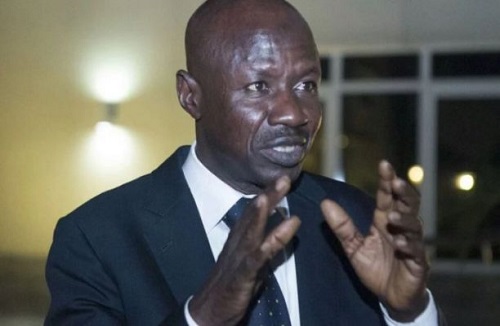This post has already been read 1602 times!
The acting Chairman, Economic and Financial Crimes Commission, Ibrahim Magu, on Thursday said the agency had recovered over N527bn, $53m and £122,89 through the whistle-blowing policy initiated by the Federal Government in December 2016.
Speaking in Port Harcourt during a town hall meeting on whistle-blowing and the fight against corruption in Nigeria, Magu stated that as of May last year, the commission had recovered the sums after members of the public reported corrupt persons with ill-gotten money.
Magu explained that the policy had created avenue for patriotic Nigerians to report criminal acts, which were inimical to the growth and development of the country.
He said, “As at May 2018, we recovered over N527bn, $53m and £122,89 through the whistle-blowing policy. More successes are being made and the response by members of the public to the policy has been very encouraging.
“The government’s whistle-blowing policy, which was introduced in 2016, is geared towards fraud detection, tracking and reporting to appropriate agencies and to enable patriotic citizens to report criminal acts such as mismanagement or misappropriation of public funds and assets, like properties and vehicles; financial malpractice or fraud; collecting/soliciting bribes; corruption; diversion of revenues; unapproved payments; splitting of contracts; procurement fraud; kickbacks and over-invoicing.”
Represented by Usman Mukhtar, a top official of the anti-graft agency, Magu further stated that some of the challenges inhibiting more Nigerians from reporting unscrupulous persons in the society to the appropriate anti-graft agency was the fear of victimisation or attacks.
He added that the fear of victimisation by whistle-blowers was currently being addressed by the Whistle-Blower Protection Act passed by the National Assembly in 2017.
“Many would-be whistle-blowers are afraid of reprisals, attacks and other attendant risks involved in volunteering information about suspicious activities around them. However, this challenge is already addressed by the Whistle Blower Protection Act passed by the National Assembly in 2017.
“The Act provides that a person who makes a disclosure shall not be subject to victimisation by his or her employers or by fellow employees.



